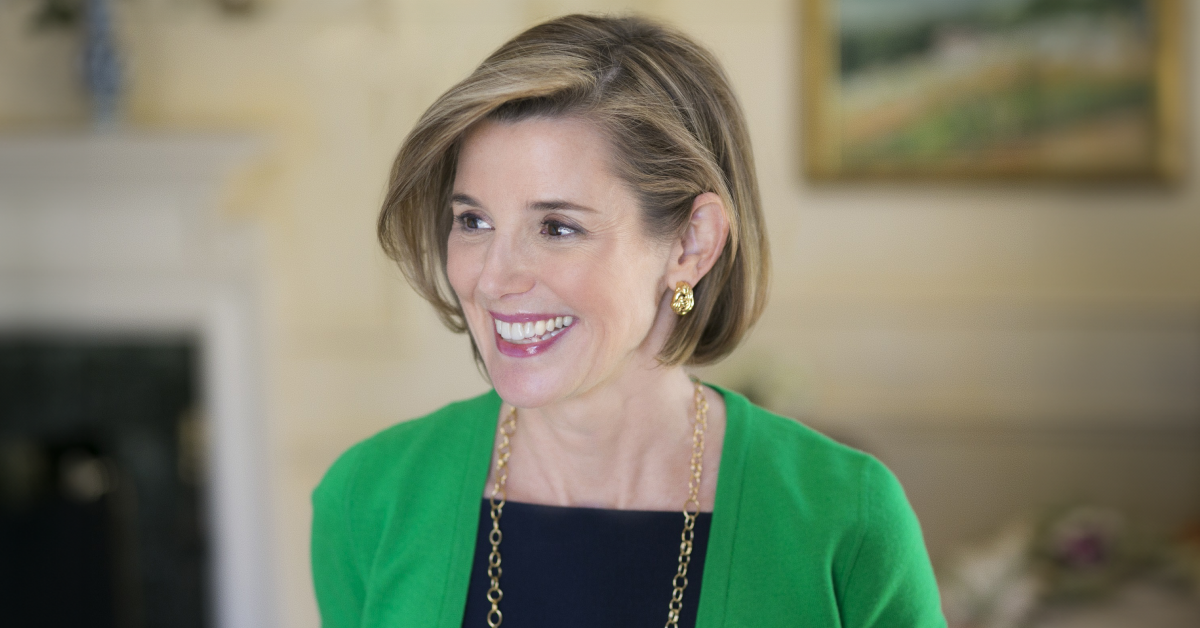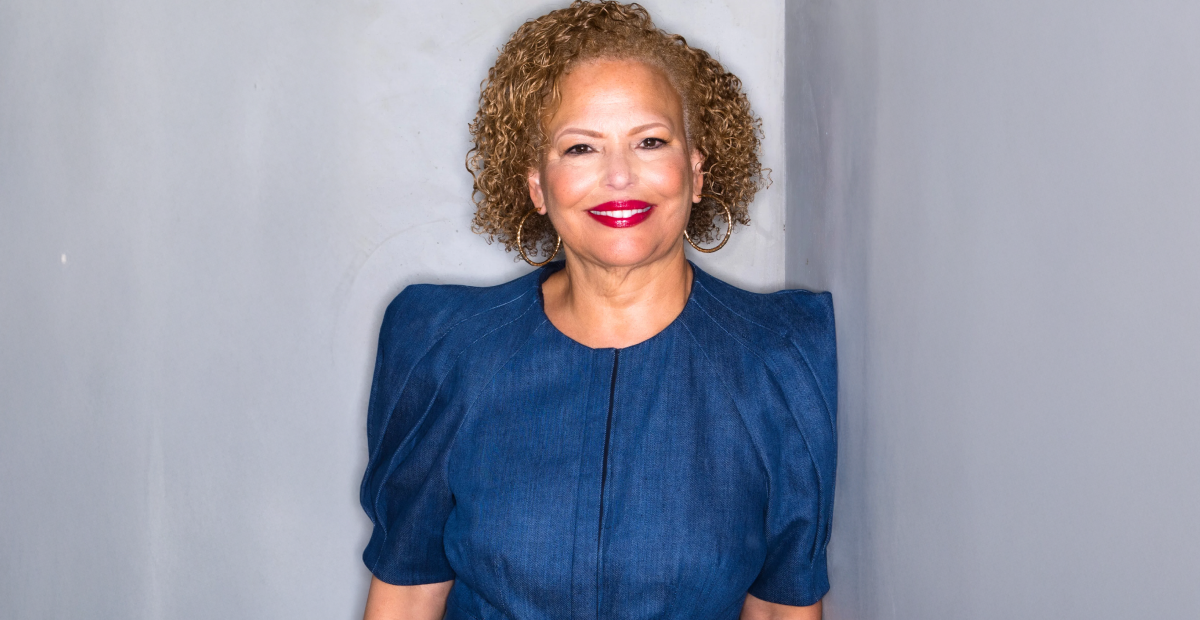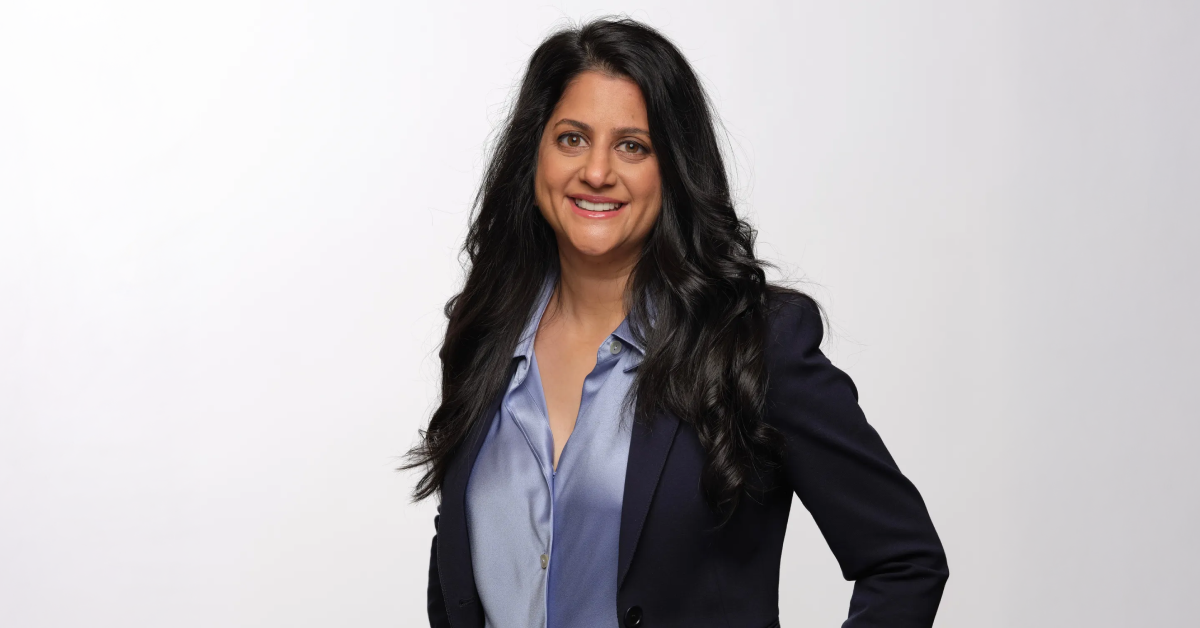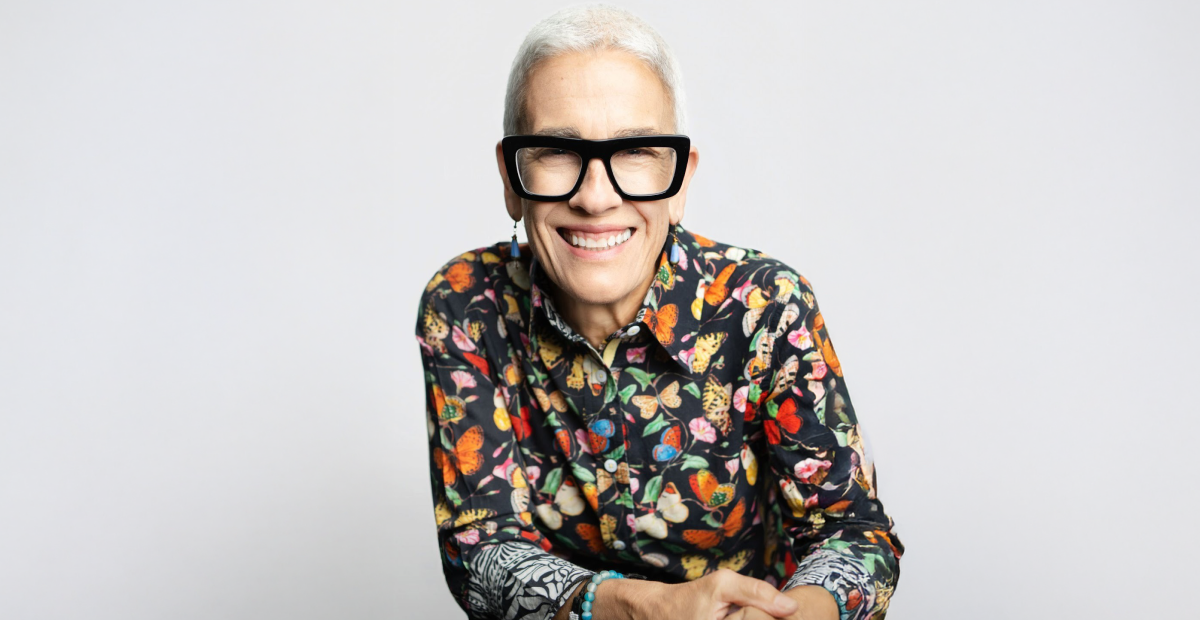There’s an insidious trick played by our society, and Wall Street pioneer Ellevest CEO Sallie Krawcheck is determined to expose it.
“They make us believe that it’s cute and fun and flirty to be bad with money,” she says. “If we think we’re not good at math, we think we’re not good at money, then we’re not as likely to go to Wall Street, which allocates capital. We’re not as likely to go into the investing industry. Therefore, we as women are less likely to build something for women.”
Krawcheck, CEO and Co-Founder of Ellevest, a wealth management platform built by women, for women, is determined to combat deeply embedded inherent biases in the personal finance space. Though she achieved trailblazing success in top roles at some of the most storied firms on Wall Street — she was CEO of Merrill Lynch, CFO of Citigroup, CEO of Sanford Berstein, and CEO of Smith Barney — Krawcheck decided to focus the next leg of her career on closing the gender wealth gap.
“Everything gets better when women have more money,” she says. “But we’ve been moving in the wrong direction.”
What will it take to move in the right direction? In a conversation with Chief Member Jennifer Ablan, Editor-in-Chief and Chief Content Officer of Pensions & Investments, Krawcheck explains what Wall Street and the media gets wrong about women, why investing is such a powerful tool for building wealth, and what women can do right now to get on the path to financial wellness.
On Ellevest Closing the Gender Investing Gap
“One day, when I was putting on my mascara, I had this sort of lightning bolt insight that changed my life: The retirement savings crisis is a woman's crisis. We don't talk about it as being a gender issue … I began to realize that all this attention was paid to the gender pay gap, but the gender wealth gap is 30 cents to a white man's dollar — for Black women, it’s a penny — and had been going in the wrong direction. When I began looking at how we work to close that, the big answer was investing. The gender investing gap, which nobody was talking about at the time, cost some women hundreds of thousands of dollars over the course of our lives because we keep more of our money in cash.
“Wall Street's answer to this was, ‘Well, women are risk-averse. We have built this whole industry and if women aren't investing as much, it’s because they're risk-averse.’ I thought, in an industry where 98% of mutual fund dollars are managed by men, 86% of financial advisors are men, more than 90% of traders are men…maybe they built a business for themselves? What if we build a business centering women? What if we have a digital offering that's the only one that takes gender into account, which is really important because women live longer, earn less, and our salaries peak sooner. If you don't take all that into account, women risk running out of money. What if we, over time, began to build a private wealth offering with women financial planners and advisors, and we provide women with ways to invest in other women? Not simply for the returns, though the research does show they’re superior, but also to have a positive impact and to really make a difference. Thus Ellevest was born.”
On Bias in Media
“Unfortunately for women today, when you say the word money, what they typically think of is loneliness and isolation and uncertainty and scarcity. And men think of money as abundance, they think of it as a river, and money comes in and out and the level goes up and down. For women, it’s a pond. Something like two-thirds of articles written for women about money are negative; they're about scarcity; they're about how difficult money is.; they're about how she overspends and gets too many facials and has too many lattes. Whereas for him, it's about making money.
“So how do we change that sense of money from something that is scarce to something that, if she's investing and earning the return that investing has driven in the past, is a source of abundance?”
On Why the Stock Market Is Accessible
“There have only been two scalable ways to build wealth in this country. One was to buy a home. But it takes a big down payment. It can take a lot of leverage in the form of a mortgage. Many people have been redlined out of buying homes, and they’re illiquid and they go up about 3% a year. Investing has no down payment, no leverage, markets are open five days a week, and anybody can do it. The stock market has historically gone up 9.5% a year, even with a cruddy last year. That has been the scalable, sustainable way to build wealth.”
On The Top Mistake Women Make With Investing
“We just don't do it enough. We don't do it quickly enough. So many women say I don't feel like I'm ready, so let me go buy a book on financial planning and investing and option strategies. The problem is, then we wait. And when we wait, we miss out on compounding.
“Compounding is the beauty of investing. It's when the rate at which you earn increases because you earn returns on your returns. And then you earn returns on your returns on your returns, and then returns on your returns on your returns on returns. And the whole thing snowballs. It’s Warren Buffett's trick: time in the market is worth much more than trying to time the market.
“I would say to everyone, if it takes 15 minutes to open an investing account, it's been historically the highest return 15 minutes of your life, except maybe that 15 minutes when you met your partner or spouse — maybe that 15 minutes was a higher return. But there are very few other higher return 15-minute spans.”
On Why Investing Should Be Boring
“I would say to everybody, at a basic level, investing should be boring. If you're watching CNBC and trying to beat the market, you're playing a loser's game unless that is your full-time job. And even then, it's difficult for people to do. Investing in a diversified investment portfolio is the way to go. And it should be boring as hell.”
On the Dearth of VC Funding for Women
“We tend to say, ‘Oh women raise 2% of venture money. Oh, no.’ And then we move on. What we don't seem to dig in on is all the businesses that don't get started because women don't get funded how men would get funded.
“On top of that, for those women who do manage to raise the money, if [they’re only getting] 2%, what that means is 50 times more meetings, 50 times more models sent out, 50 times more decks sent out, 50 times more updates, 50 times more stupid questions, 50 times more second meetings, and nobody gets the money raised in one meeting. It is really difficult to overstate what a grind it is.
“We had professional women funding Ellevest, so our community was really funding the company. It was pulling together women in a way to overcome the structural issues in venture capital for women raising money.”
On Why Building Wealth Is a Team Sport
“When I was coming up through corporate America, it was absolutely an individual sport. And I absolutely understood that there was one seat or two seats at the table for underrepresented groups, women, people of color, etc. And that meant that I was competing against those members of the underrepresented groups, not the white gentleman at the table.
“The men, in the meantime, were playing it as a team sport, funding each other, talking each other up, putting each other on the boards, hiring each other's kids, giving each other recommendations, giving each other career tips, promoting each other.
“This is why building capital is so important for us. As we build wealth, we invest that wealth in other women. And the research tells you you get superior financial return. So at Ellevest, we have offerings, like investing in women-run venture capital funds that invest in women, or getting working capital to women small business owners in Latin America, or fixing up workforce housing in a sustainable way, in my home states, the Carolinas, and renting them out to women in transition. I could go on and on. [It’s about] how do we get capital to each other, which will, in a virtuous circle, generate more capital?”
On the Power of Being “Off Consensus”
“I built a big career and part of the reason I did that was that I was often off of consensus. I learned that when I was a research analyst. If you're going to say ‘IBM reported earnings. They were two cents ahead. Here's why.’ – you’re not going anywhere. What really worked were big calls on big stocks. So we'd say IBM is a sell when everybody else says it's a buy, and let me give you the reasons why. Even if you weren't right, you added so much more to the discussion. So when I went into running Sanford Bernstein, Smith Barney, Merrill Lynch, and then certainly Ellevest, I always took the point of view of having a very different strategy.”
On Surviving a Layoff
“I've been through a couple of them and they have, in hindsight, been the greatest stepping stones of my career. I've had different careers in my 20s, 30s, 40s, and 50s, and each of them was after spending some introspective time thinking about what made sense for me next.
“Some of these things can affect you that are no fault of your own in a tough environment. It seems like the worst day of your life. By trying to take advantage of the twists and turns when they come through, for me, those worst days have turned out to be the best days.
“The other thing is to invest. I'll remind you the US has recovered from every recession and depression and the stock market has recovered from every bear market. We might want to be unhappy about some things going on in this country. But capitalism does drive economic growth.”
On Learning About Business and Financial Wellness from Women Athletes
“What we have to do as women in business is think about what the Williams’ sisters, and Billie Jean King, and Megan Rapinoe would do. It used to be unattractive for women to be athletic. When I was in middle school, between cheerleader or volleyball, I was going for cheerleader. The patriarchy had taught me that [cheerleading] was cute and fun and flirty, as opposed to volleyball, which was not going to get me a date. But then the Williams sisters came along and these women came along, [being athletic] became part of a well-lived, well-rounded, healthy lifestyle. We need to do the same thing with money because it is part of wellness.
“While the media is sort of talking down to us about money, they're talking about emotional wellness, physical wellness, spiritual wellness, and psychological wellness. You can't have those things if you don't have financial wellness.”



